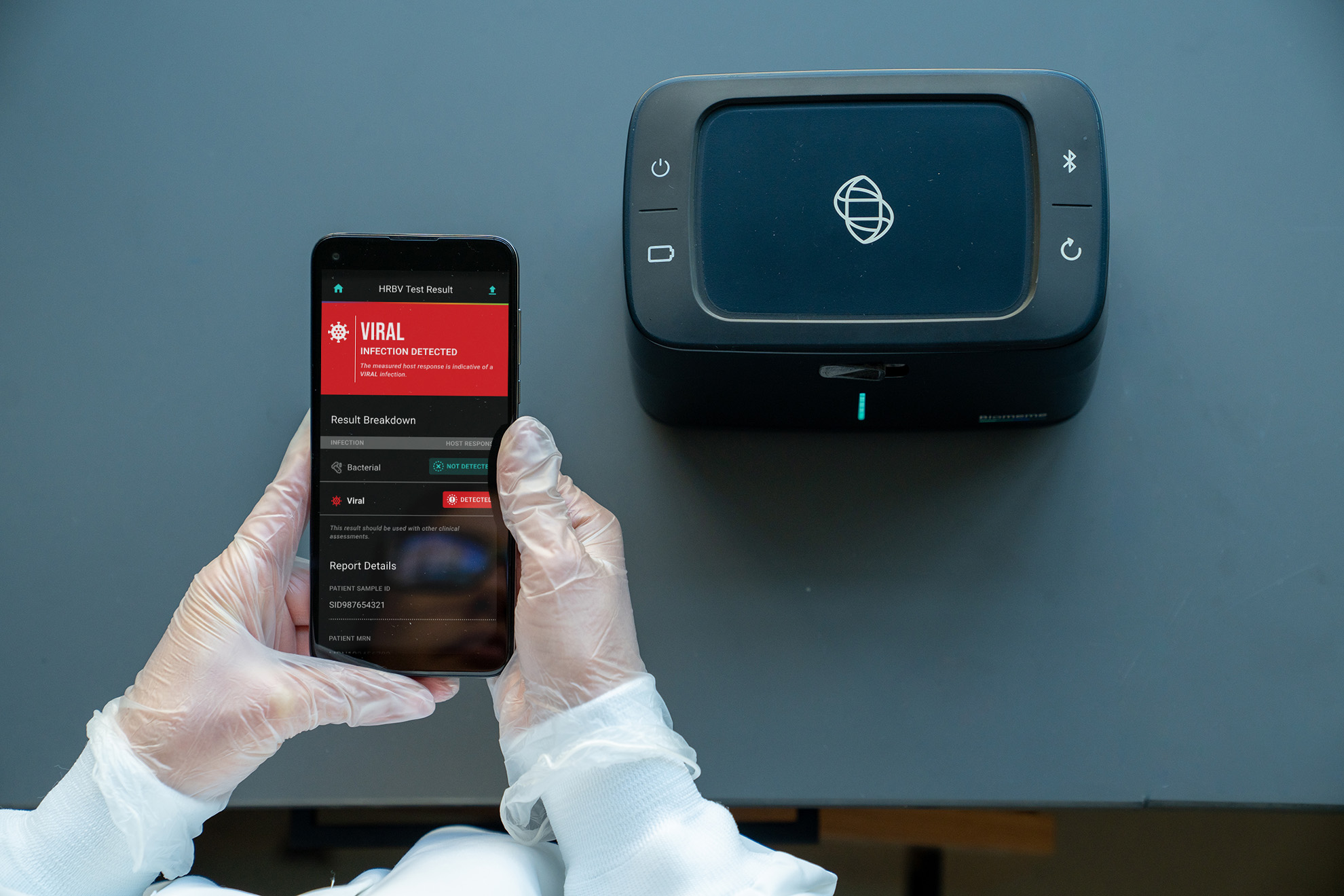These studies show the impact and potential for host response diagnostics.
Host Response diagnostics have immense potential to save human lives and combat antimicrobial resistance by providing quick and predictive diagnoses. With its remarkable accuracy and efficiency, it could very well revolutionize global healthcare while also mitigating the effects of future pandemics.
We are hard at work to define and advance the full capabilities of host response diagnostics, but there is already a strong body of evidence of just how impactful this technology will be.

In 2021, Biomeme merged with Predigen, a spin-out from Duke University and a global leader in the development of host gene expression signatures for use as prognostic, diagnostic, and therapeutic monitoring tools. That merger was made with the intention of advancing host response diagnostics, and recent and ongoing publications indicate this partnership is highly effective.
The mission of these two companies, merged under the Biomeme brand, is trusted by some of the world’s most respected and relied upon organizations, such as Cross-Border Threat Screening and Supply Chain Defense (CBTS), National Institutes of Health and the Antibacterial Resistance Leadership Group, and heavily featured in highly trusted, peer-reviewed publications, such as Science and Technology.
But don’t take our word for it; read these studies to see the potential impact of Biomeme’s host response technology on the advancement of global health.
The host transcriptional response to Candidemia is dominated by neutrophil activation and heme biosynthesis and supports novel diagnostic approaches.
A blood-based host gene expression assay for early detection of respiratory viral infection: an index-cluster prospective cohort study.
Validation of a host gene expression test for bacterial/viral discrimination in immunocompromised hosts.
Previously derived host gene expression classifiers identify bacterial and viral etiologies of acute febrile respiratory illness in a south Asian population.
Validation of a host response test to distinguish bacterial and viral respiratory infection.
A miRNA host response signature accurately discriminates Acute Respiratory Infection etiologies.
Unsupervised analysis of transcriptomics in bacterial sepsis across multiple datasets reveals three robust clusters.
Transcriptomic analysis of the host response and innate resilience to Enterotoxigenic Escherichia coli infection in humans.
Potential cost-effectiveness of early identification of hospital-acquired infection in critically ill patients.
A genomic signature of influenza infection shows potential for presymptomatic detection, guiding early therapy, and monitoring clinical responses.
A host-based RT-PCR gene expression signature to identify acute respiratory viral infection.
A host transcriptional signature for presymptomatic detection of infection in humans exposed to influenza H1N1 or H3N2.
Temporal dynamics of host molecular responses differentiate symptomatic and asymptomatic influenza a infection.
Gene expression signatures diagnose influenza and other symptomatic respiratory viral infections in humans.
*Biomeme's HR-B/V Test is currently under development and is not approved/cleared by the FDA.
401 North Broad St Suite 222 Philadelphia, PA 19108